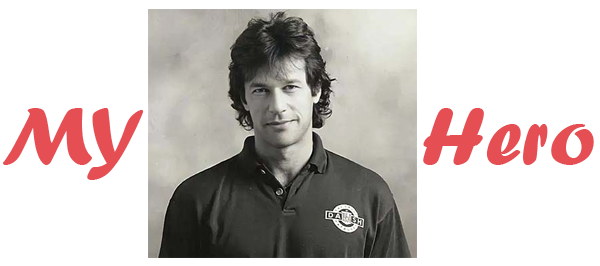In a time while almost the whole thing may be curated, edited, or filtered for likes, the phrase “Being Authentic Whatutalkingboutwillis” hits otherwise. It doesn’t just nod to nostalgia—it demands situations for us to pause and question the developing disconnect between who we are and who we gift to the world. This article explores what it sincerely method to be actual, why it’s more difficult than ever to achieve this, and why—despite the noise—realness nonetheless deeply matters.
The Meaning Behind the Phrase
“Being Authentic Whatutalkingboutwillis” is more than a catchy blend of phrases. It fuses a timeless cultural quote—Gary Coleman’s iconic line from Diff’lease Strokes, “What you talkin’ ’bout, Willis?”—with a call to sincerity. It’s the verbal equivalent of elevating an eyebrow while someone’s being faux. It asks us to assume: Are we being real, or simply playing a position?
The authenticity method is true to your values, your emotions, and your story. It’s approximately displaying up with integrity, even when it’s uncomfortable. Meanwhile, “whatutalkingboutwillis” embodies playful skepticism, urging humans to check themselves and others when realness is missing.
Why We Struggle with Realness
Modern lifestyles, specifically online, don’t make authenticity smooth. Social media has created an area where image often outruns reality. The common consumer spends over 2.5 hours an afternoon on social platforms, in step with DataReportal’s 2024 record. Much of that time is spent digesting curated highlights of others’ lives. The result? We compare our behind-the-scenes with someone else’s front degree.
We’re praised for displaying perfection but not often rewarded for honesty. And for influencers or public figures, the pressure is even worse—realness risks vulnerability, at the same time as curated content draws emblem deals. This culture teaches us to offer a version of ourselves that is filtered for approval.
The Emotional Cost of Pretending
Living a life disconnected from your genuine self has effects. According to Harvard Business Review, personnel who sense they can not be themselves at work revel in higher pressure and decreased job satisfaction. The identical applies to personal lifestyles: while we mask who we are to healthy in or avoid battle, it creates internal anxiety.
Over time, this dissonance can cause burnout, anxiety, and self-doubt. We start asking, “Who am I without a doubt?” because we’ve spent so long acting. That question—though painful—is the primary signal that realness is looking back.
Why Authenticity Still Matters
Trust, in both private and expert relationships, is constructed on realness. People instinctively sense when someone’s being sincere. Whether it’s a companion, a pal, a chairman, or a public discernment—authentic conduct builds connection. On the turn side, performative sincerity can create distrust that lingers.
In management, authenticity is a recreation-changer. A 2023 observation by means of PwC confirmed that sixty percent of purchasers consider agencies more whilst their leaders are transparent. The same applies to influencers: followers stick around for honesty, now not just aesthetics.
Being genuine additionally benefits our intellectual health. When you live in alignment with your reality, your choices feel less conflicted. There’s less 2d-guessing and more self-assurance. You don’t waste energy maintaining masks.
A Filtered World Needs Real People
Social media changed into intended to connect us. But mockingly, it frequently alienates us from our truth. “Being Authentic Whatutalkingboutwillis” stands as a reminder that we need to carry ourselves—our complete selves—into the virtual areas too.
Even authenticity may be faked. “Curated imperfection” is the brand new trend—think messy hair posed flawlessly or an unhappy confession paired with an aesthetically alluring selfie. True authenticity isn’t about oversharing or dramatizing flaws. It’s about sharing whilst it’s significant, no longer just while it’s marketable.
Pop Culture Meets Reflection
The catchphrase “What you talkin’ ’bout, Willis?” was initially humorous, but its enduring appeal lies in its tone: part curiosity, part task. It questions what doesn’t add up.
That same method applies to authenticity. Sometimes, we want to venture into the jobs we’re gambling. Whether it’s looking to be an appropriate determine, the unshakable leader, or the ideal content material writer—we ought to pause and ask: What are we virtually doing this for?
Practical Ways to Be More Authentic
Being actual doesn’t suggest announcing everything you suspect or revealing each detail of your life. It was being constant among what you believe, say, and do. Here are some methods to carry extra truth into your lifestyle:
- Self-take a look at-ins: Take time weekly to ask, Am I doing this because I need to, or because I feel I must?
- Speak honestly and kindly: Honesty doesn’t require cruelty. Say what you suggest with recognition.
- Respect your limits: Setting boundaries doesn’t make you difficult. It makes you sincere.
- Celebrate your flaws: Not each part of you desires to be polished to be valid.
- Choose your crowd: Surround yourself with folks who cost who you are—not who you faux to be.
Common Myths That Undermine Realness
There are lots of misunderstandings around authenticity:
- “Being actual approach announcing the whole thing for your thoughts.” No—it means selecting truth, now not impulsiveness.
- “If I’m myself, humans may not like me.” True—however the ones who stay will see you, no longer a version of you.
- “You can’t be actual and prevail.” Authenticity builds more potent, lasting consideration—specifically in the long term.
Physical Presence & Social Identity
While authenticity starts offevolved on the interior, humans also express it physically—via fashion, appearance, and presence. And yes, public figures or creators speaking approximately authenticity frequently grow to be personalities of interest. If the word “Being Authentic Whatutalkingboutwillis” is tied to a person or influencer (as is common with branded terms), readers might also want to recognize more about them.
As of now, there may be no broadly identified person officially tied to this phrase. However, in lifestyle and weblog circles (which include the domain whatutalkingboutwillis.com), authors regularly proportion authentic views on parenting, pop culture, and ordinary struggles—showing what authenticity seems like in real life.
If the character in the back of this phrase turns into public:
- Age: Typically, way-of-life bloggers sharing private authenticity variety between 30–50 years old, often reflecting mid-life transitions and real speak.
- Physical Appearance: Often non-performative—denims, unfiltered selfies, no forced glamor.
- Net Worth: Not typically emphasized; authenticity bloggers usually reject influencer-fashion “success” fashions.
- Family: Many talk from the lens of being parents, spouses, or caregivers—roles in which realness is critical.
- Social Media: Instagram, Threads, or private blogs where followers come for relatability, no longer celeb.
- Followers: Genuine engagement > huge numbers. Often 2k–20k fans with dependable comments, stocks, and DMs.
Also Read Here: What Makes Blog MobileCreativeOrg Stand Out in a Mobile-First World
Final Thoughts: Real Still Wins
“Being Authentic Whatutalkingboutwillis” is greater than a phrase—it’s a warning call. In an age of noise, it urges us to forestall and ask what’s real. To question the roles we’ve taken on. And to embody that every so often, being your complete, wrong, unfiltered self is the boldest element you may do.
Being proper gained’t continually make you famous. It gained’t constantly be comfortable. But it’ll usually be really worth it.
Irrespective of how a whole lot of the world modifications, realness will constantly count numbers. And the folks that deliver it to the desk—those who show up as themselves—are those we bear in mind.

